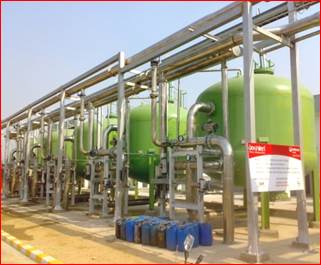
In recent years, the convergence of technology and sustainability goals has led to groundbreaking innovations in various sectors, with water management being no exception. The advent of IoT (Internet of Things) has catalyzed a paradigm shift in how we approach the conservation, distribution and utilization of water resources. This article explores the manifold benefits of integrating IoT-based solutions into water management systems, elucidating its transformative impact across industry verticals and community landscapes.
The real-time monitoring capabilities of IoT-based systems empower stakeholders to detect anomalies and potential issues before they escalate. By continuously monitoring water quality parameters, such as chemical composition and purity, IoT facilitates early detection of contaminants or pollutants. Moreover, predictive analytics algorithms can anticipate equipment failures or leaks, enabling preemptive interventions to mitigate risks and minimize downtime. This proactive approach not only safeguards water quality but also enhances operational resilience and reliability.
Automation lies at the core of IoT-driven water management systems, streamlining processes and maximizing resource utilization. Through smart meters, real-time monitoring systems and dynamic pricing models, IoT enables precise control over water distribution, consumption and billing. By optimizing pumping schedules, reducing leakages and minimizing energy consumption, IoT contributes to significant cost savings for utility companies and consumers alike. Moreover, by facilitating data-driven decision-making, IoT empowers stakeholders to implement targeted interventions for efficiency enhancement and cost optimization.
At the heart of IoT-enabled water management lies the principle of transparency. By interconnecting disparate components of the water supply chain—ranging from sourcing to distribution—IoT facilitates real-time data acquisition and dissemination. Stakeholders, including governments, utility companies and consumers, gain unprecedented visibility into resource utilization and system performance. This transparency empowers informed decision-making, enabling stakeholders to optimize operations, identify inefficiencies and proactively address challenges.
In an era characterized by escalating environmental concerns, IoT emerges as a potent tool for promoting sustainability within the water sector. By facilitating precise monitoring and control of water resources, IoT minimizes wastage and promotes conservation efforts. Additionally, by enabling efficient irrigation practices in agriculture and reducing energy consumption in treatment plants, IoT contributes to carbon footprint reduction and environmental stewardship. Furthermore, by fostering awareness and accountability among stakeholders, IoT cultivates a culture of responsible water management, aligning with global sustainability goals.
The application spectrum of IoT in water management is diverse and dynamic, encompassing a myriad of solutions tailored to specific needs and contexts. From sensor-based irrigation systems to cloud-based analytics platforms, IoT technologies offer a suite of tools for optimizing water utilization, enhancing operational efficiency and driving sustainable outcomes. Industry leaders such as Bosch exemplify the transformative potential of IoT with their sensor-based irrigation solution, which leverages AI algorithms to optimize water usage and crop health.
In conclusion, the integration of IoT into water management systems heralds a new era of efficiency, transparency and sustainability. By harnessing the power of real-time data analytics, automation and predictive modeling, IoT empowers stakeholders to navigate the complex dynamics of water resource management with precision and efficacy. As we confront the challenges of population growth, urbanization and climate change, IoT stands as a beacon of hope, offering innovative solutions to safeguard our most precious resource—water. Through collaborative efforts and strategic investments, we can leverage IoT to build resilient, equitable and sustainable water ecosystems for generations to come.
At GEMS, We possess extensive expertise in engineering and management services that positions us as leaders in implementing IoT-based smart water management solutions. With deep industry knowledge and technical proficiency, we can design, deploy and manage comprehensive IoT-powered water infrastructure to optimize efficiency, minimize wastage and drive sustainability across the entire water supply chain. Our specialized services enable water utilities and stakeholders to fully capitalize on the transformative potential of IoT technology for innovative and intelligent water management practices.
If you need any services, drop us a mail at Rohitkumar.Singh@gmrgroup.in or get in touch with us at +919717199753.